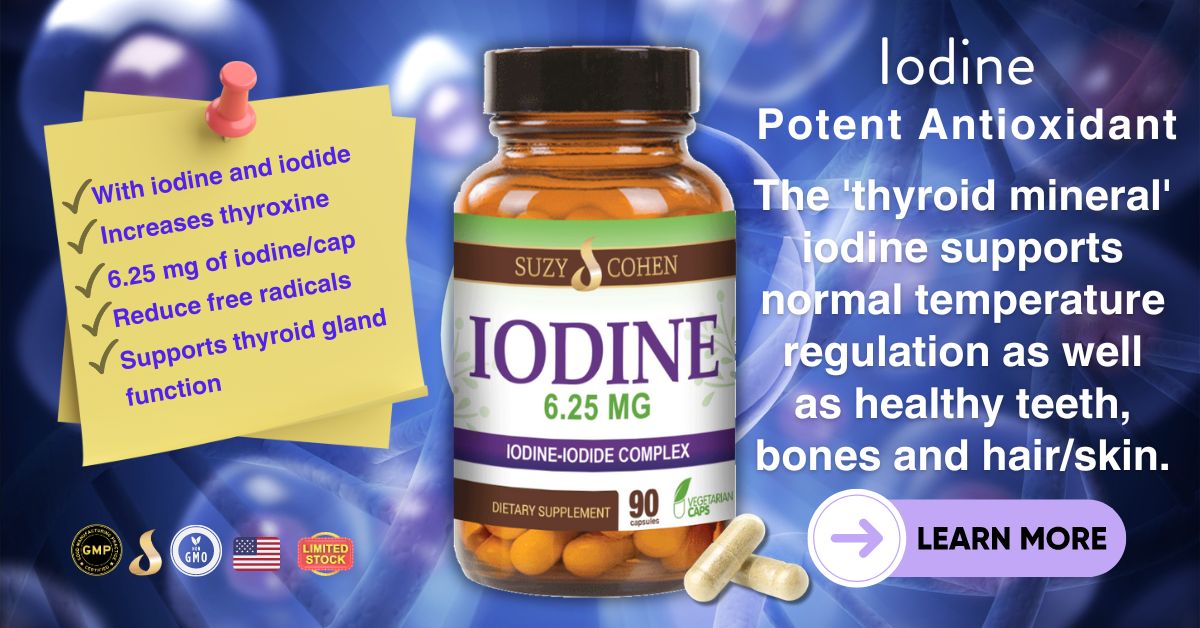What's On This Page?
ToggleI’m bothered when the discussion of food toxins or allergens get brought up during meals, as it can crash your whole dining experience, but since none of us are eating right now, I’ll tell you about perchlorates. You can eat foods contaminated with that. This pervasive toxin attacks thyroid function. If you’re not sure if you have thyroid illness, you can take a blood test. You can also scroll down below to see what the symptoms are.
Thyroid hormone gives you energy, improves mood, regulates heart rhythm, stimulates hair growth and helps you burn fat. When you drink or eat contaminated foods with perchlorates, they compete with iodine preventing uptake, and this reduces thyroid function. We know for a fact perchlorates inhibit the “sodium-iodide symporter” and perchlorates are sometimes injected intravenously into people in order to test them for Hashimoto’s thyroiditis.
Would you like to learn more about Hashimoto’s? It’s more common than you think – in fact, it is a leading cause of hypothyroidism! Consider: Hashimoto’s Thyroiditis: Help For The 5 Most Devastating Complications
Perchlorates and Thyroid Disease
You may also be interested in the liver enzyme Catalase (which is available as a supplement) –> this antioxidant plays a role in clearing cellular peroxide which can become elevated in thyroid disease. LEARN MORE about that connection.
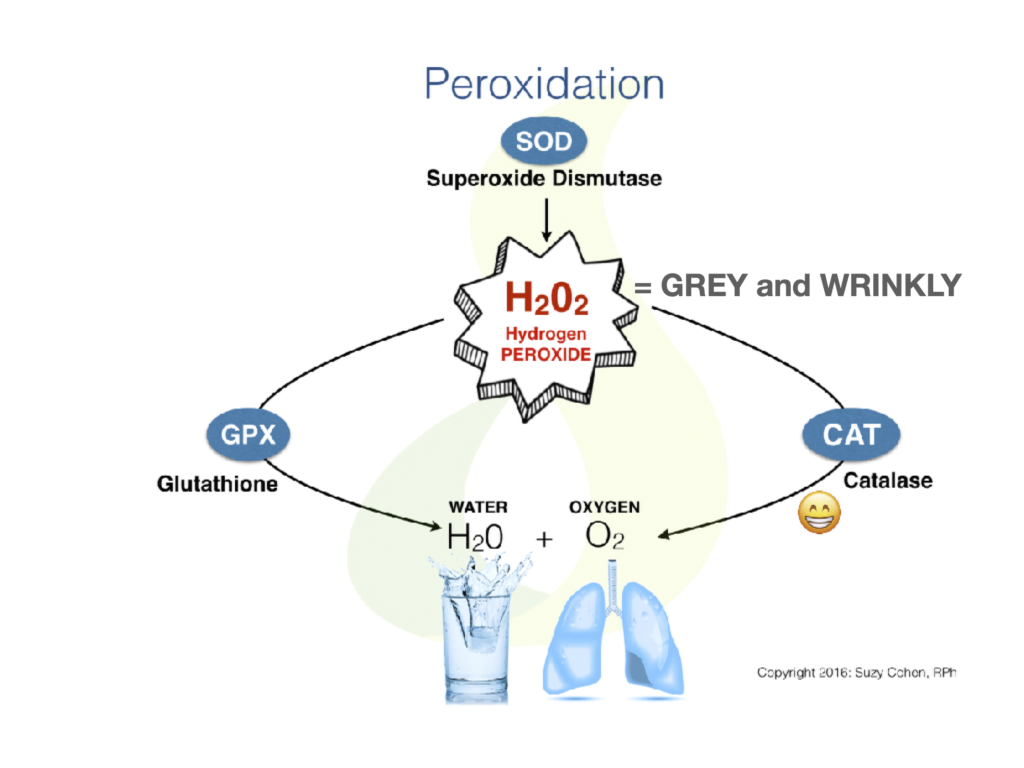
Whether you eat it, drink it or get exposed during a test, perchlorates can lead to hypothyroidism. That is associated weight gain, fatigue and infertility.
The National Institute of Health (NIH) describes perchlorate as a natural and man-made colorless, odorless chemical commonly used to make pool chlorination chemicals and chlorine-derived cleaners, rocket flares, fireworks, military munitions, blasting agents, matches, car air bag inflators, batteries, fertilizers, chewing tobacco, aluminum refining, and more. Yep, pretty much EVERYWHERE!
As a result, perchlorate has contaminated our groundwater supply. People living on the East coast, California, Texas, or the southwest have the highest environmental exposures and their foods grown there are most contaminated. Water, eggs, milk and fruits and vegetables (lettuce, asparagus, kale, spinach) have high amounts.
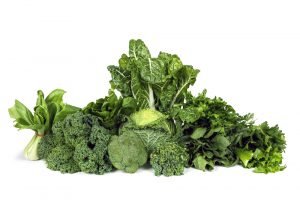
Leafy greens, rich in natural folate, have a lot of perchlorates present if they are grown in perchlorated-contaminated water! Choosing “organic” won’t matter with perchlorates, however, there are other benefits. I’m not saying to avoid this, just try to buy your leafy greens from states that don’t have a high environmental risk. You’ll have to do more research on this, or read my above paragraph.
Perchlorate has a fast turnover in the body which prompts the Perchlorate Information Bureau to reports that low levels of this chemical in drinking water and food supplies is not dangerous to human health.
Even the FDA says it’s no biggie: FDA is not recommending that consumers of any age alter their diet or eating habits due to perchlorate.
I disagree. The first study of its kind recently evaluated perchlorate exposure in pregnant women to see what happened to brain development in offspring. Scientists included 487 expectant mothers -all hypothyroid- and measured their perchlorate levels during the first trimester.
The women tested positive for perchlorates, and were all iodine deficient. No surprise there, remember, iodine is bullied off the receptor sites in the presence of perchlorate. Iodine deficiency can lead to hypothyroidism. Researchers followed the women who had the highest perchlorate levels during pregnancy through birth and until their children were 3 years old.
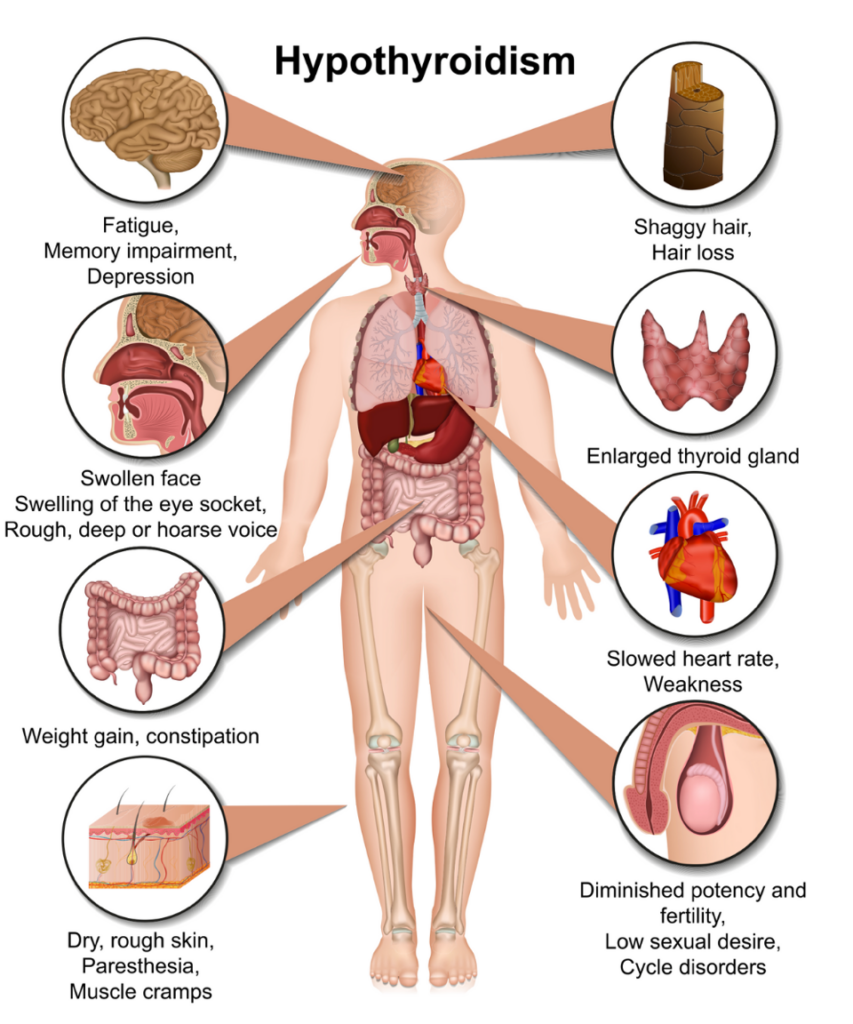
The toddlers all had diminished cognitive development and were in the lowest 10th percentile of IQ. I wonder how many of these moms had experienced a miscarriage during their life, as hypothyroidism is a common (but sadly missed) cause of miscarriage.
What’s so interesting is that thyroid medications were employed, and in fact, use of thyroid medications by moms with the highest perchlorate exposure did not even help offset the lower IQ in their children. The medicine didn’t even matter. The study did not say if the children were hypothyroid from birth. If they are, it should be a lifetime of thyroid hormone replenishment, either medication or supplemental.
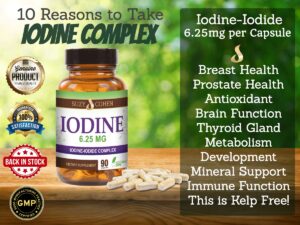
What can you do To Avoid Perchlorates?
Avoidance.
Avoid exposure to fruits and vegetables grown in areas with elevated levels of perchlorates. Do not expose yourself to any of the sources of perchlorate that I listed above. Washing your vegetables is the difficulty! Water isn’t enough.
When it comes to perchlorates, these pesky chemicals are known for their stubbornness. Again, simply rinsing your greens under some water, even with a splash of vinegar which I usually do, might not make the perchlorates ‘pack their bags’ and leave. However, a solution of water and vinegar is still better than water. It can still help in removing other surface residues and contaminants, ensuring your greens are cleaner overall.
For a more thorough clean, one that can tackle perchlorates, consider using a “vegetable wash” product designed to remove a wide range of residues. Although these products may offer a better clean than water or water/vinegar, it’s a step up. Keep in mind that 100% perchlorate removal is not possible because of their ability to be absorbed into the plant and literally integrated into our food supply!
Iodine.
When perchlorates are in your body, and also iodine, it is a race to the receptor site. Either perchlorate or iodine will occupy the sites, and get hugged into the cell. Because perchlorate compounds have a relatively short half-life, having iodine on board could help. Before you take iodine or kelp, read more about iodine and salt by clicking here.

Selenium.
Drinking perchlorate-contaminated water can cause a deficiency of selenium.
Glutathione or NAC.
Having an antioxidant on board can help neutralize the free radical damage that is spawned. On this continuum of antioxidants, consider Catalase too.
My CATALASE brand is the #1 seller on Amazon in case you like to shop there (instead of my shop), and for good reason, it is encapsulated in acid-resistant capsules. The other brands I’ve looked at degrade the minute they hit your stomach acid! The formulators didn’t know how to formulate them properly so that they’d work for you. Check out my CATALASE.
Stop chewing tobacco.
It’s a source of perchlorate. It’s been detected in various brands of chewing tobacco.
Stop playing with gunpowder. Well, I’m kind of joking, none of us are doing that but we might be ‘playing’ with pool chemicals or chlorinated products. Stop that because that is a source of perchlorate.
Milk.
Not sure what to say, perchlorates are found in certain milks. This chemical contaminant as you know, can make its way into water and soil, and from there into the plants that are consumed by dairy cows. Then the farmers milk the cows and we drink it. Consequently, this is yet another potential route of exposure to humans.
Monitoring and regulation vary by region, so the levels of perchlorate in milk will depend on local environmental conditions and agricultural practices. It’s important for you to be aware of this possibility, especially in areas known for higher levels of perchlorate contamination.
Summary
So let me summarize it all now: Perchlorates are these sneaky chemicals that have found their way into our environment, and they’re stirring up some trouble, especially for our thyroid glands!
Picture this: your thyroid is just trying to do its job, making hormones with the help of iodine, when perchlorate crashes the party and blocks iodine from getting in! You might say perchlorates are drug muggers of iodine!
This contamination can lead to a sluggish thyroid, or hypothyroidism, which means you might feel tired, gain some unwanted weight, or feel colder than everyone else in the room. See the symptoms above because there’s more.
But it’s like perchlorate is that uninvited guest who just won’t leave, making everything a bit more difficult for your thyroid! Especially for expectant moms and little ones, this gatecrasher is more than just a nuisance, it’s a known health hazard. So, keeping an eye on perchlorate levels is pretty crucial to keep our thyroids, and us, humming along happily. If you notice symptoms of this condition, speak to your physician so you can get some lab tests, and supplements and/or medications which act as hormone replacement.

Suzy Cohen, has been a licensed pharmacist for over 30 years and believes the best approach to chronic illness is a combination of natural medicine and conventional. She founded her own dietary supplement company specializing in custom-formulas, some of which have patents. With a special focus on functional medicine, thyroid health and drug nutrient depletion, Suzy is the author of several related books including Thyroid Healthy, Drug Muggers, Diabetes Without Drugs, and a nationally syndicated column.
